
Panth Rattan Shiri Gurcharan Singh Tohra was a president of Shiromani Gurdwara Parbandhak Committee (SGPC), a Sikh body in charge of controlling Gurdwara. He died of a heart attack in New Delhi on 1 April 2004 at the age of 79. He remained the head of the SGPC for a record 27 years, and was one of the most influential and controversial Sikh leaders of the 20th century.

The Shiromani Gurdwara Parbandhak Committee is an organization in India responsible for the management of Gurdwaras, Sikh places of worship in states of Punjab and Himachal Pradesh and the union territory of Chandigarh. SGPC also administers Darbar Sahib in Amritsar.
Shiromani Akali Dal (Democratic), was splinter group of the Badal-led Shiromani Akali Dal. SAD(D) was formed in 1996 under the leadership of Kuldip Singh Wadala who would become the first president of the party. The party for a couple of years allied with various political parties across India that had similar platforms to challenge governments on certain issues. Ahead of the 2004 Lok Sabha elections, SAD(D) had re-merged with the Badal-led Shiromani Akali Dal again.
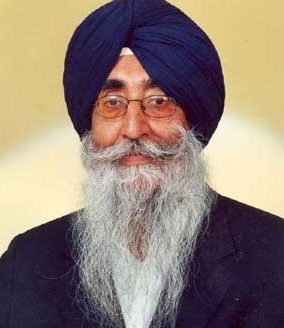
Simranjit Singh Mann is a former Indian Police Service officer and a Member of the Parliament in the Lok Sabha, the lower house of the Parliament of India, representing the constituency of Sangrur since 2022. He is the president of the political party Shiromani Akali Dal (Amritsar). Mann has served three-times as an MP; once from Taran Tarn between 1989 and 1991, and twice from Sangrur between 1999-2004 and since 2022. He is known as a Khalistani supporter and his party is known for their pro-Khalistan stances.

Tara Singh was a Sikh political and religious figure in India in the first half of the 20th century. He was instrumental in organising the Shiromani Gurdwara Prabhandak Committee and guiding the Sikhs during the partition of Punjab, which he sometimes opposed, however much of his life he advocated simply for a “Azad Punjab”(Free Punjab) before demanding the independent nation of “Sikhistan” prior to partition.
Sunder Singh Lyallpuri was a leading Sikh member of the Indian independence movement, a general of the Akali Movement, an educationist, and journalist. Lyallpuri played a key role in the development of the Shiromani Akali Dal, and in the Gurdwara Reform Movement of the early 1920s and also founding member of Central Sikh League. He took part in several roles in the establishment and growth of Indians independence.

Harjinder Singh Dilgeer is a Sikh historian and author known for his work as the only author who has written A Complete History of the Sikhs.
Sadhu Singh Bhaura was a Sikh missionary who served as the 21st Jathedar of the Akal Takht from 1964 to 1980.
Sewa Singh Sekhwan was an Indian Politician and a member of Aam Aadami Party. He was one of the founding members of Shiromani Akali Dal (Taksali). He was the Education minister of Punjab under the ten-year government of Shiromani Akali Dal. He was sworn in as a cabinet minister for the second time on 26 October 2009. Sekhwan's father Ujagar Singh Sekhwan was MLA from Kahnuwan in 1977 and 1980. He was founder of a group supporting Indian minorities and Dalits front. He remained the president of Akali Dal during the Emergency in India.

Parminder Singh Dhindsa is an Indian politician and belongs to the Shiromani Akali Dal (Sanyukt) Political Party. He was a member of the Shiromani Akali Dal until late 2019. He is currently MLA from Lehra and was leader of Shiromani Akali Dal Legislature group in Punjab Legislative Assembly until he quit. He was Minister for Finance & Planning (2012-2017) and Minister for Public Works (B&R) (2007-2012) in the previous Punjab Government. He is son of Rajya Sabha member Sukhdev Singh Dhindsa. He was first elected as MLA of Sunam in September 2000 by defeating Parmeshwari Devi of Congress during the by-election. He was re-elected as an MLA for the fifth consecutive term in 2017 with his tenure since 2000 to 2012 from Sunam and from 2017 onwards from Lehra Constituency. He is triumphant in his entire career since 2000.

The Haryana Sikh Gurdwara Parbandhak Committee, also known as the Haryana Sikh Gurdwara Management Committee (HSGMC), is an organization responsible for the upkeep of Sikh Gurdwara in Haryana, India. It was formally formed on 11 July 2014 by the bill was passed by Haryana Legislative Assembly. Before this the Gurdwaras of Haryana were officially under Shiromani Gurdwara Parbandhak Committee (SGPC). HSGPC is headquartered at Kurukshetra.
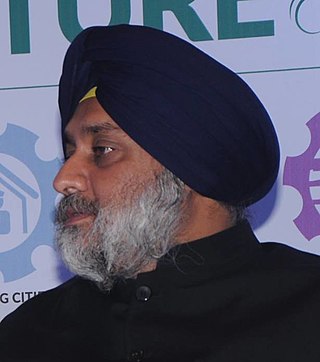
Sukhbir Singh Badal is an Indian politician and businessman who served twice as the Deputy Chief Minister of Punjab and is currently the president of Shiromani Akali Dal, along with being a member of Parliament from the Firozpur Lok Sabha constituency. He is the son of Parkash Singh Badal, who has served five times as the Chief Minister of Punjab. He holds lots of power over the Sikh organizations of the Shiromani Gurdwara Parbandhak Committee and the Delhi Sikh Gurdwara Management Committee. A businessman at heart, Badal and his family have ownership stakes in an array of businesses- including real estate, transport and other activities.
Shiromani Akali Dal (Taksali) was an Indian political party which was formed by Ranjit Singh Brahmpura, Rattan Singh Ajnala and Sewa Singh Sekhwan on 16 December 2018. On 4 November 2018, Shiromani Akali Dal expelled Sewa Singh Sekhwan the former Punjab Minister and then on 12 November 2018 expelled Ranjit Singh Brahmpura MP from Khadoor Sahib (Lok Sabha constituency), Rattan Singh Ajnala former MP, Ravinder Singh Brahmpura and Amarpal Singh Ajnala from the party.

Jagdev Singh Talwandi was an Indian politician. He was elected to the Lok Sabha in 1978 as a member of the Shiromani Akali Dal (SAD), a Sikh-centered regional political party. Talwandi was elected SAD president in 1978 and 1988. He became the President of the Shiromani Gurdwara Parbandhak Committee (SGPC) in 2000. He was elected to the Punjab Vidhan Sabha thrice in 1967, 1969, and 1972, and was inducted as a Minister of State for Development and Animal Husbandry in the Gurnam Singh Ministry and the Minister of State for Jails, Sports and Transport in the Parkash Singh Badal government. He represented Punjab in the Rajya Sabha from 1980 to 1986.
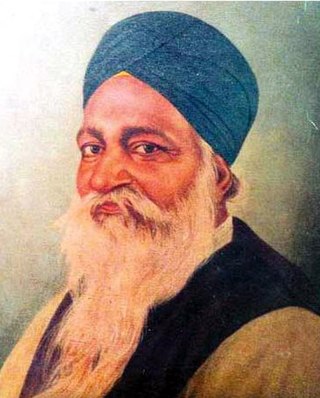
Udham Singh Nagoke was a freedom fighter, Jathedar of Akal Takht and member of Rajya Sabha.

Mohan Singh Nagoke was a politician from Punjab, freedom fighter and former Jathedar of Akal Takhat Sahib.
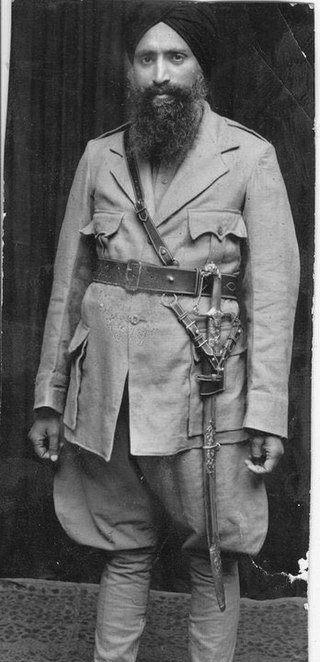
Ishar Singh Majhail (1901-1977) was an Indian politician and legislator from Punjab.

Bawa Harkrishan Singh was a politician from Punjab and freedom fighter.
The Shiromani Akali Dal (Sanyukt) (SAD(S)) (translation: Supreme Akali Party (United)) was a centre-right Sikh-centric political party in Punjab, India, formed by former Shiromani Akali Dal leaders Sukhdev Singh Dhindsa and Ranjit Singh Brahmpura.
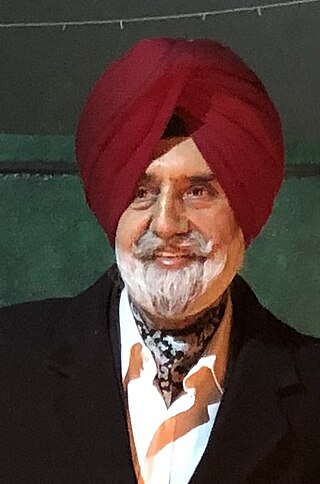
Ranjit Singh Talwandi was an Indian politician who was the Secretary General of Shiromani Akali Dal (Sanyukt). He served as Member of the Punjab Legislative Assembly from Raikot (2002-2007). He was son of Jagdev Singh Talwandi, former president of Shiromani Gurdwara Parbandhak Committee and Shiromani Akali Dal.


























